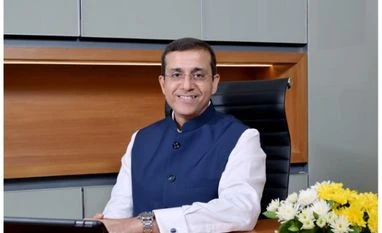The equity market delivered subdued returns in 2022 amid uncertainties at the macro level, starting with the Russia-Ukraine stand-off, rate tightening, and high inflation. Headwinds loom large on 2023 returns, given the recessionary fears and high valuations of Indian stocks. Vishal Kapoor, chief executive officer, IDFC Mutual Fund (MF), says markets can still go up if earnings growth turns out to be strong this calendar. In conversation with Abhishek Kumar, Kapoor says less risky funds like the balanced advantage or other hybrid offerings should be the go-to option for new investors. Edited excerpts:
High valuations and global slowdown worries do not paint a fine picture of the Indian markets. Do you see any tailwinds that can still drive the market up in 2023?
Although liquidity has played a role in India’s outperformance over three years, earnings growth has been the key market driver for three years. During this period, the Nifty rose 49 per cent with an earnings growth of 43 per cent.
Over the next 12 months, the Nifty earnings per share is expected to grow 18 per cent - one of the best earnings growth rates in the world.
Most of the earnings growth is expected to be driven by margin expansion on account of cooling commodity prices (a global slowdown results in the loosening up of commodity prices). Notwithstanding high valuations, strong earnings growth can propel markets this calendar.
Small-caps went through a significant correction in 2022. Are they attractively valued right now?
The small-cap index was down 2 per cent in 2022, while the Nifty went up 4.3 per cent. Although small-caps underperformed, the underperformance was relatively modest. Most of the froth in the small-cap space has been removed, but the segment is not exactly cheap. Compared to the Nifty, the small-cap index is trading at slightly higher than fair valuations.
How do you see valuations in the large- and mid-cap segments?
Of the three segments, large-caps are the cheapest on a relative basis. Over the past decade, the Nifty has returned 12 per cent compound annual growth rate (CAGR), whereas the BSE MidCap 150 Index has returned 16 per cent CAGR.
In terms of valuation, the mid-cap index is the most expensive. But this segment also has a high concentration of good quality companies with growth significantly higher than large-caps, and the risk of an accident significantly lower than small-caps. Therefore, the premium valuation may be justified to some extent, although it limits the extent of future outperformance.
How should investors go about allocating to equity schemes in the current scenario?
We encourage investors to focus on long-term goals and stay true to their asset allocation. The market faces some headwinds, largely in the form of high valuations and global uncertainty. However, we should not ignore the tailwinds in the form of strong earnings growth expectations and a healthy long-term growth outlook for India.
Investors may look to use meaningful corrections to deploy additional funds.
New investors may choose less risky products like balanced advantage funds or other hybrid funds or large-cap funds.
In 2022, which sectoral calls proved to be the best bet for IDFC MF? Which well-performing sectors or themes did you miss out on?
We were overweight on automotive across most funds which did well, and overweight on corporate/public sector banks in some funds which did very well.
In terms of misses, capital goods was a miss across most funds.
Do you expect the Budget this year to bring some good news to the market?
With most indirect tax decisions shifted to the Goods and Services Tax Council, recent Budgets have become less eventful from a sectoral perspective.
While most individuals would like lower taxes, given the high fiscal deficit and government debt to gross domestic product ratios, it would be challenging to expect significant tax reductions.
Redemptions from active equity schemes surged 60 per cent month-on-month in November as investors booked profits. Do you think this was the right move, especially for those who had made a good profit?
In addition to individual needs for funds, investors may have used rebalancing strategies to take advantage of sharp equity peaks and troughs, given their greater appreciation for portfolio diversification across debt and equity.
)
)

















